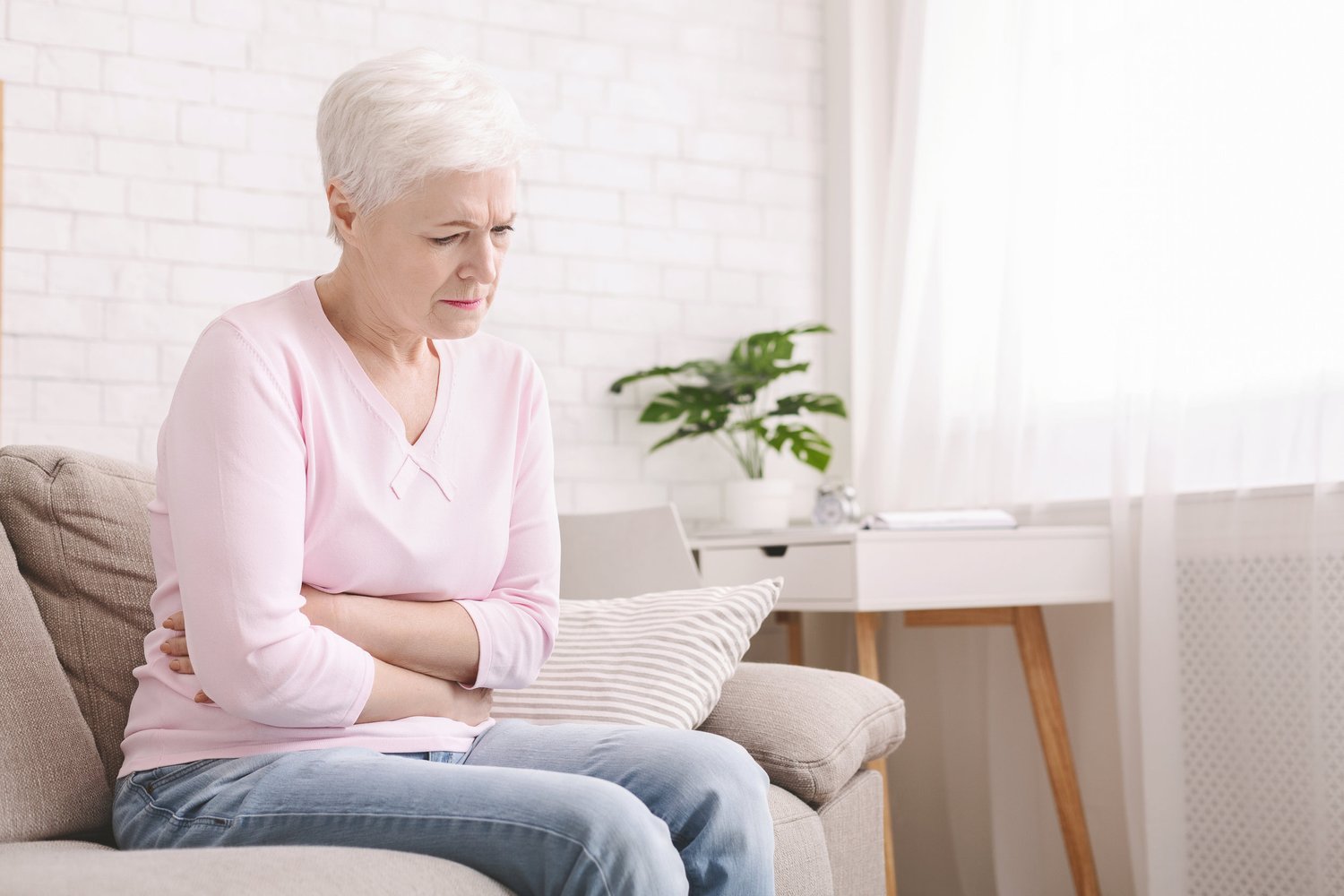Endometriosis is an extremely painful condition to experience, and many of us wonder when the pain will end. Does it go away? Is there any way to lessen the pain?
Many of us may be approaching or experiencing menopause right now, which brings with it difficulties of its own, but could it alleviate the pain of endometriosis? In the following blog, we’ll shed some light on this issue and put your mind at ease.
What is Endometriosis?
Sometimes referred to as ‘endo,’ endometriosis is a health problem that is common in women. The name derives from the word endometrium, which is the tissue that normally lines the uterus or womb.
Endometriosis happens when tissue similar to the lining of the uterus grows on the outside of your uterus and on other areas of your body where it doesn’t belong. In most cases, endometriosis is found on the ovaries, fallopian tubes, on the tissues that hold the uterus in place, or on the outer surface of the uterus. In some cases, it can also grow on the vagina, cervix, vulva, bowel, bladder, or rectum.
Endometriosis rarely appears in another part of the body, such as the lungs, brain, or skin.
Symptoms of Endometriosis
The most common symptom of endometriosis is pain. There can be various types of pain, including:
-
Very painful menstrual cramps, which can become worse over time.
-
Chronic (long-term) pain in the lower back and pelvis
-
Pain during or after sex. This is usually described as a ‘deep’ pain and is different from the pain felt at the entrance to the vagina, where penetration begins.
-
Intestinal pain
-
Painful bowel movements or pain when urinating during menstrual periods. In rare cases, you may also find blood in your stool or urine.
Bleeding or Spotting
This occurs between menstrual periods, this can be caused by something other than endometriosis, and if it happens often, then you should see your doctor.
Infertility
If you’re having trouble getting pregnant, it may be a side effect of endometriosis.
Stomach (Digestive) Problems
Can include diarrhea, constipation, bloating, or nausea. This can happen more frequently during menstrual periods.
How Common is Endometriosis?
It’s a prevalent health issue for women. Some researchers believe that at least 11% of women or more than 6 ½ million women in the United States have endometriosis. It can occur in any girl or woman who has menstrual periods, but is more common for women who are in their 30’s and 40’s.
Some factors can make it more likely to contract endometriosis, such as:
-
If you’ve never had children
-
Menstrual periods that last more than seven days
-
Short menstrual cycles (27 days or fewer)
-
Family history of endometriosis
-
Having a health problem that blocks the normal flow of menstrual blood during your period
Can Endometriosis Be Cured?
The short answer is no, unfortunately. However, some medications can help alleviate some of the pain. A doctor should always be consulted before you decide to take any medicine to lessen the pain.
Endometriosis and Menopause
We’ve discussed the effects of endometriosis, and in many cases, women that menstruate are much more vulnerable to the disease than women who are no longer menstruating.
So, can menopause alleviate the symptoms of endometriosis or stop it altogether? For many women, when menstruation stops, the symptoms related to endometriosis will lessen somewhat after menopause.
However, your ovaries still produce small amounts of estrogen, so the endometrial-like tissue may still respond to the hormone, causing you to experience symptoms. There are treatments available such as hormone therapy or surgery to remove the endometriosis implants or scar tissue in the hopes of relieving symptoms. In some cases, surgery might include the removal of the uterus or ovaries completely. It should be noted that these procedures are not always successful in alleviating the pain endometriosis causes.
Visit MetroPartners OBGYN
If you have questions, concerns, or feel like you need further information when it comes to menopause and endometriosis, feel free to contact us here. We’re happy to help and available at several locations throughout the East Metro.

